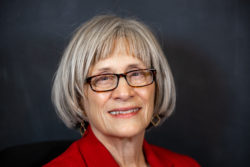 The Un-Bias Guide for Educators is based on the Matrix Model Management System which embeds the storytelling principles of cultural anthropology in diversity training. The Un-Bias Guide for Educators is a combination text / workbook customized for high school students, teachers, and administrators. The Un-Bias Guide is an innovative tools for maximizing awareness, boosting sensitivity, and developing competence at a time of intensified biases, both conscious and unconscious. The Un-Bias methodology is interactive on both an individual and group level.
The Un-Bias Guide for Educators is based on the Matrix Model Management System which embeds the storytelling principles of cultural anthropology in diversity training. The Un-Bias Guide for Educators is a combination text / workbook customized for high school students, teachers, and administrators. The Un-Bias Guide is an innovative tools for maximizing awareness, boosting sensitivity, and developing competence at a time of intensified biases, both conscious and unconscious. The Un-Bias methodology is interactive on both an individual and group level.
CLICK on the video for details from award-winning author Deborah Levine…
WHAT IS THE UN-BIAS CHALLENGE?
“Today, high school students, more than ever before, seem to have their ‘cyber’ finger on the pulse of society. Unfortunately, the assumed superior foundation uses brick n’ mortar from all resources regardless to it’s accuracy, reliability and accountability. Ultimately, the onslaught will destroy credibility. Who does one trust? How can one vet the truth? Are we desensitized from feeling? How do we act and react when given a true or false? At such a formative and productive age to grow, can you determine and assess? Are you aware? What do you believe? Do you have the ability to communicate and ask what you want to know? Only by having factual knowledge can you process and move forward. The steps taken are a distinction from opinion. An opinion is not a fact. An implication is not an application. What you think at one phase in your life is not what you know in another. Your success depends on your skills.”
~ Honorable Samuel Verniero PhD: Appellate Board Member at Selective Service System
WHY THE UN-BIAS GUIDE IS THE ANSWER
The Un-Bias Guide for Educators is an eye-opening device for bringing students and staff together in these troubling times. Addressed in this edition is diversity among school populations and exercises are presented that will encourage team-building and acceptance. Deborah Levine is an expert at analyzing cultures and how organizations are affected by them. School administrators would benefit greatly by using this manual for professional development in order to develop cultural and organizational awareness among staff and students.
~ Beth Lynne, Ed.D: Technology & education researcher, retired educator
A STUDENT’S PERSPECTIVE
“As a young person who has worked on a number of teams for political causes and academic projects, I felt that this Un-Bias Guide illuminated the prevalence of bias in interactions and the importance of recognizing it. The Guide begins with exercises to identify personal biases and then progresses to exercises to understand others’ biases through a powerful lens: storytelling. The ultimate effect of this guide is to develop empathy, a trait at the core of effective teams that is crucial to solving problems and addressing the impasses that teams face because of unrecognized biases.” ~ Allen Liu: Recent Chattanooga high school graduate
- UNTOLD Stories of a World War II Liberator - April 10, 2024
- International Women’s Day: Past and Present Converge – by Deborah Levine - April 5, 2024
- Finding the joy in a world gone to the dogs – by Deborah Levine - March 20, 2024
